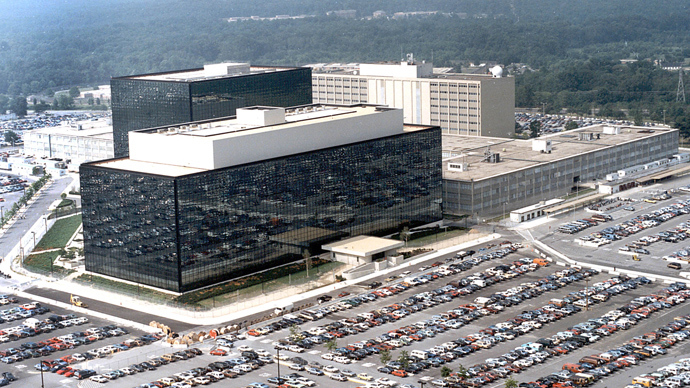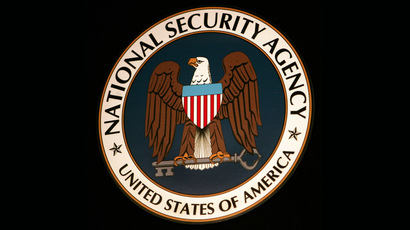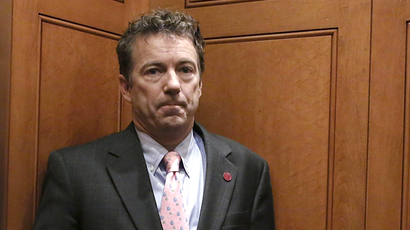NSA to release list of prevented terror attacks

The National Security Agency plans to release details on Monday about the “dozens” of terror plots thwarted by the use of recently leaked surveillance programs, but Washington’s elite is still split on the issue.
On the eve of the NSA’s expected disclosure, opinions on the controversial surveillance programs leaked earlier this month by former intelligence contractor Edward Snowden remain varied. Some members of Congress have already received preliminary information about what alleged acts of terror were thwarted by snooping through phone records and Internet habits, but the benefits of a supposed balance between privacy and security are still up for debate.
Speaking on Sunday talk shows this weekend, a handful of past and current politicians weighed in on the matter, including two key members of President George W. Bush’s administration who oversaw surveillance practices in the wake of the September 11, 2001 terrorist attacks.

Dick Cheney, the vice president under the Bush administration for all eight years, threw his support behind the Obama administration on Sunday, saying the practices being used by the NSA today could have helped prevent al-Qaeda's attack on America.
“Two-thirds of the Congress wasn’t here on 9/11, or for that period immediately after when we got into this program,” former vice president Dick Cheney said on ‘Fox News Sunday.’ “When you consider the possibility of somebody smuggling something like a nuclear device into the United States, it becomes very, very important to gather intelligence on your enemies and stop that attack before it ever gets launched."
According to Snowden, though, the intelligence being gathered by the NSA is more than just vague data used to target suspected terrorists. Instead, says Snowden, the United States intelligence community is conducting dragnet surveillance, scooping up intimate details about the conversations being conducted by millions of Americans.
Retired Gen. Michael Hayden, who headed at times both the NSA and Central Intelligence Agency under President Bush, used an appearance on NBC’s “Meet the Press” on Sunday to counter Snowden’s claims.
"There's a natural instinct in the United States to rush the story to the darkest corner of the room," he said. "But I don't think that's where this story belongs. And as Americans learn about the safeguards and the effects of the products of this program, I think they'll become even more comfortable."

Hayden also used the opportunity to dismiss the leaker’s claims that some members of the intelligence community can simply eavesdrop on any conversation occurring in the United States.
"Snowden's wrong," he said. "He could not possibly have done the things he claimed he was able to do in terms of tapping communications."
But while Cheney and Hayden certainly aren’t alone in condemning Snowden’s actions, on the other site of the spectrum are a number of important figures from both side of the aisle who say the current administration has gone too far with their practices. On the record, the NSA has admitted that phone numbers, the length of calls and other metadata is routinely handed over to the government by telecom agencies. Snowden and others say that’s just the tip of the iceberg, though, and it should stop right there.
“I don’t think collecting millions and millions of Americans’ phone calls … is making us any safer. I think we should have this debate,” Sen. Mark Udall (D-Colorado) said on Meet the Press. “It doesn’t have to be all or nothing.”
Earlier in the week, Sen. Rand Paul (R-Kentucky) said he hoped to sue the government over the collection of data, calling it “an outrageous abuse of power and a violation of the Fourth Amendment to the Constitution.” The American Civil Liberties Union has already filed a lawsuit in federal court against the Obama administration.

But according to the White House, any toss of civil liberties that occurs as a result of the program is a price that must be paid in order to stay protected from terrorists. Last week, White House press secretary Jay Carney said of Obama, “He made clear that you cannot have 100 percent security and 100 percent privacy, and thus we need to find that balance.”
“He believes, as commander-in-chief, that the oversight structures that are in place to ensure that there is the proper review of the types of programs we have in place, authorized by Congress through the PATRIOT Act and FISA, do strike that balance,” Carney said.
Rep. Mike Rogers (D-Michigan), chairman of the House intelligence committee, told CNN over the week, “If you can see just the number of cases where we’ve actually stopped a plot, I think Americans will come to a different conclusion than all the misleading rhetoric I’ve heard over the last few weeks.”
The NSA plans to publish information on Monday about how surveillance programs stopped terror attacks in dozens of instances across 20 countries.














